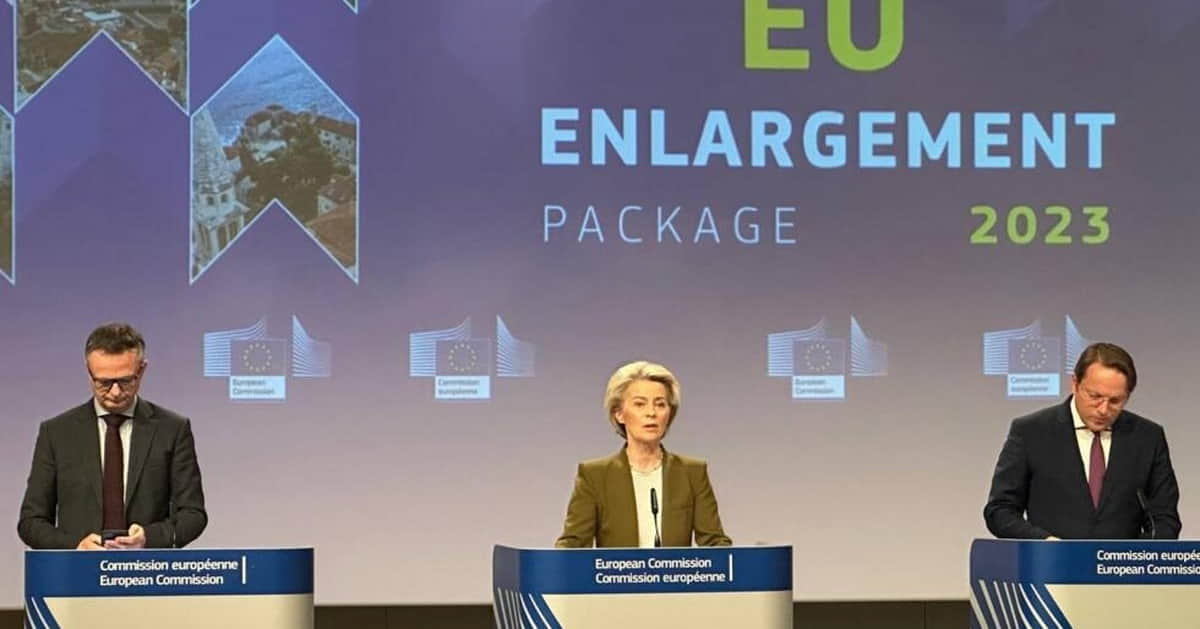What Ukraine needs to do to conclude EU accession negotiations in a few years

Last week, the European Commission released an EU enlargement report that many considered historic. Brussels has acknowledged for the first time that Ukraine has "matured" enough to start accession negotiations. It is important to understand that several other countries are heading towards EU accession at the same time as Ukraine.
Ukraine needs to "jump" into the next wave of enlargement because there might be a pause afterwards. Therefore, Ukraine needs to catch up with the leading candidates. Who are they?
Is it true that Ukraine should be measuring its progress based on their results? Sergiy Sydorenko, European Pravda's editor, has analysed a set of reports by the European Commission. He has found out that, unfortunately, Ukraine is not a leader among candidate countries.
Read more in his article - EU Candidate Race: Can Ukraine Catch Up with Western Balkans? Analysing EU Commission Report. The government says Ukraine is at a high level of readiness for accession and has pledged to complete the negotiations within two years.
But is that realistic? Ukraine's strength and potential success lie in the speed of reforms, which has been decent, but still not the best. Moldova is the leader in this field.
Ukraine's speed currently does not give much hope that the negotiations will be completed within two years. It needs to move ten times faster if it is to achieve membership in the foreseeable future. At the moment, Ukraine and Moldova are behind all the other countries currently negotiating or about to start negotiations with the EU - Albania, Montenegro, North Macedonia, and Serbia.
Their levels are currently approximately the same. Albania remains the only Balkan country continuing to progress towards membership. In contrast, Turkiye's relationship with the West has deteriorated disastrously, and it continues to drift away from Europe year upon year.
Although Turkiye is the most integrated with the EU economically and it has excellent average ratings, in reality, it has lost its chance of accession. To join the EU, Ukraine must rapidly catch up with the Balkan candidates. The same applies to Moldova, which is politically linked to Ukraine regarding EU membership.
Currently, both countries have earned an "average performer" grade: Moldova has an average score of 1.92, while Ukraine's is 2.27. But there is good news. Ukraine and Moldova are the leaders when it comes to progress, although their speed is still insufficient.
Their indicators seem "successful" only because most of the other candidates (not only Georgia, but also the Balkan states) are stagnating and implementing no reforms at all. Meanwhile, even at Moldova's pace of reform (+6.5 points per year), it would still take about 15 years to fully meet the EU's requirements (5 points for each chapter and closing negotiations on them). Needless to say, these are absolutely unacceptable estimations.
So next year, without even waiting for the formal opening of negotiations, Ukraine should increase the pace of reforms tenfold, as this is the only way to achieve the current level of Euro-integration reached by the Western Balkans. And when we say "tenfold", that means literally, not figuratively. But is this realistic?
Hence, Ukraine's competitors for EU membership are Montenegro, North Macedonia and Albania. The latter is slightly lagging behind in terms of its integration level (2.7 points compared with 3-3.1). However, in terms of enthusiasm, the Albanians are clear leaders.
They are the only state in this stagnant region that continues to actively implement reforms. Ukraine should pay particular attention to this country. Read more - EU Candidate Race: Can Ukraine Catch Up with Western Balkans?
Analysing EU Commission Report.
If you notice an error, select the required text and press Ctrl + Enter to report it to the editors.